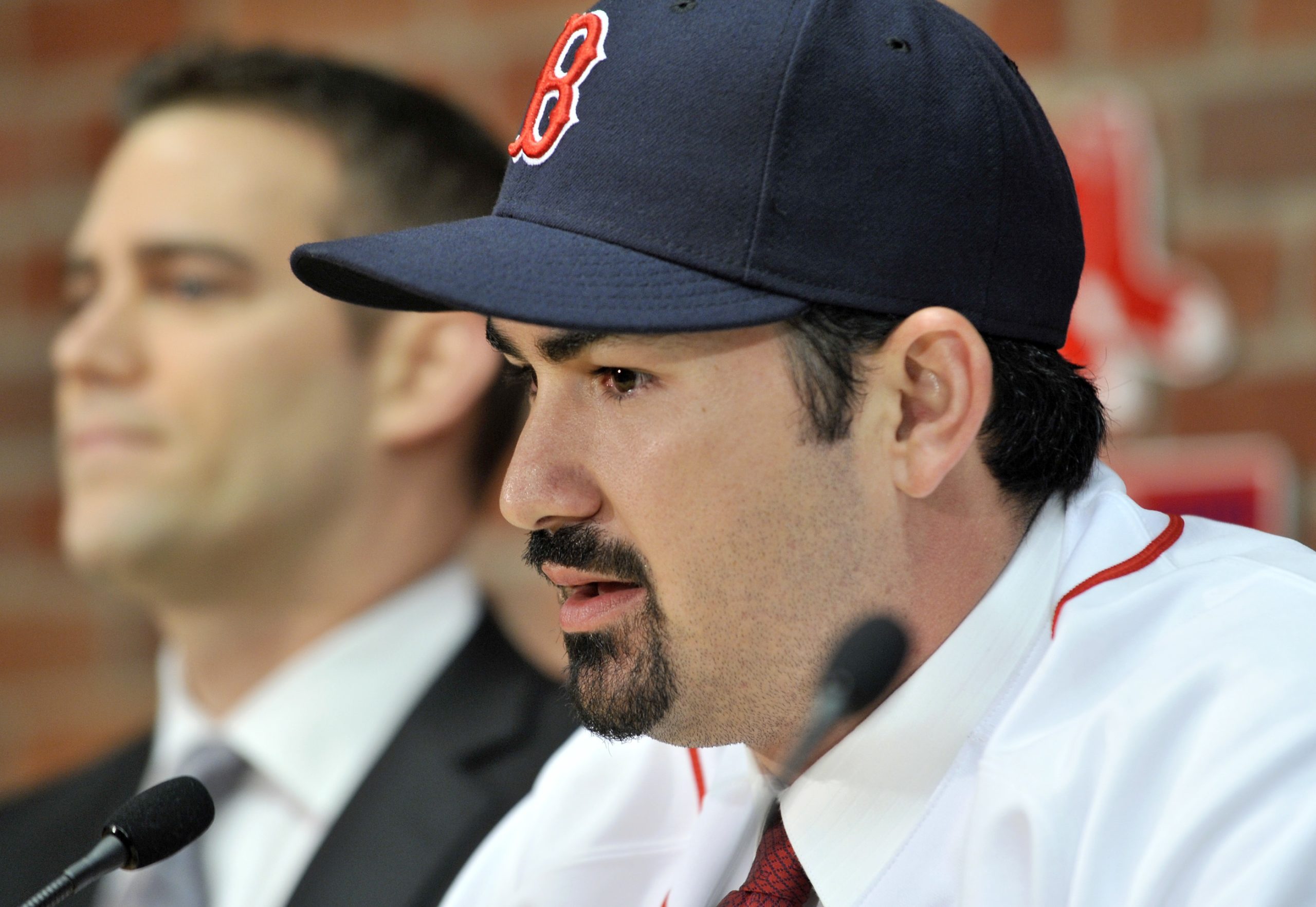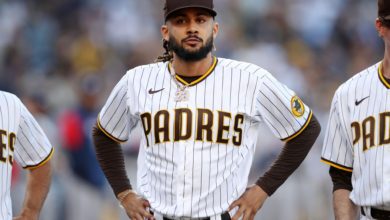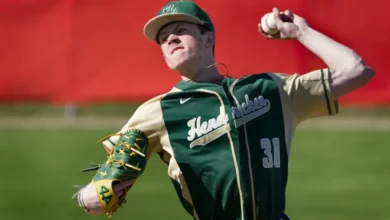
With opening day of the 2011 baseball season right around the corner, excitement is brewing. As always, every team starts with a clean slate. Predictions are bold. Anything can happen.
The same holds true for the San Diego Padres. They have an awesome young team, kind of like the Kansas City Royals or the Cleveland Indians. Tons of untapped talent. But the Padres won 90 games last year. At the very least, they should have qualified for a wild card spot in the playoffs. That won’t happen this season, because their superstar first baseman, Adrian Gonzalez, is gone.
When Padres ownership decided it would be unrealistic to sign Gonzalez, 28, to a long-term contract extension in his option year, he was traded to the Boston Red Sox last December for a nice group of minor league players. The inevitable became reality and left San Diego fans in shock. This was Adrian Gonzalez, an all-star for three consecutive seasons, a winner of two Gold Gloves. A soft-spoken, Mexican-American kid who grew up on both sides of the border, Gonzalez endeared the public as a philanthropist and club ambassador. He was the face of the franchise, the first player to hold that distinction since Tony Gwynn.
Gonzalez, it seemed, was always destined for stardom. The pride of Eastlake High in south San Diego, he was the first-round pick of the Florida Marlins in the year 2000 amateur draft. The 18-year-old was a 6-2, 200-pound powerhouse when formally introduced at a Miami press conference.
“Wow,” blurted a reporter, “what do they feed you guys out in San Diego?”
“Well, I can’t speak for everybody else,” replied Gonzalez shyly, “but I eat Mexican food!”
Like most kids signing right out of prep ball, Gonzalez was not an overnight success. He was a floundering fish for the most part with Florida, and was traded to the Texas Rangers in 2004. He played a mere 59 major league games over two seasons there when Padres former General Manager Kevin Towers, with brilliant insight, engineered a trade that brought Gonzalez back home to a team he cheered for as a boy.
In the first four seasons he played in San Diego, Gonzalez was team MVP three times. In 2009-10, he hit a combined 71 home runs in spacious Petco Park. Without a significant hitter to protect him in the lineup, Gonzalez was also a National League leader in walks over those two years. In 2010, he batted .298 with 101 RBI’s while playing in pain with a shoulder injury.
Sadly, the Padres made no real effort to extend Gonzalez’s contract. When agent John Boggs indicated that his client was seeking fair-market-value for his services, young Padres General Manager Jed Hoyer was disappointed, thinking Boggs was no Scott Boras and would accept a “San Diego discount.” So Hoyer threw in the towel and huddled up with his former boss in Boston, Theo Epstein, to arrange a package deal. Fans aren’t dumb, and many felt Jed betrayed them. What’s more, Gonzalez’s eventual replacement would turn out to be former Colorado Rockie Brad Hawpe, who hadn’t played first base since his college days. It was a tough sell.
Gonzalez spent the winter healing from a labrum cleanup in his non-throwing shoulder, the injury most likely due to playing 322 games over his final Padre seasons. He holds no ill feelings toward his home town team, realizing that professional baseball was the business he chooses.
“I’m really grateful for my years in San Diego,” says Gonzalez. “I gave it all I had. But now I’m in Boston, where the greatest San Diego player of all time, Ted Williams, spent his career.”
Gonzalez has been applauded for his charity work in the border city, launching with his wife, the Adrian and Betsy Gonzalez Foundation in the summer of 2008. He also has been a supporter of Big Brothers and Sisters of San Diego, Project KIDS, and the Make-a-Wish Foundation, plus many other contributions in Tijuana, Mexico. And the beat will go on.
“I still have a home in San Diego, my family lives here,” notes Gonzalez. “My foundation is based here. I’m not going to change the way I do things.”
Gonzalez, who would be a free agent after this season, is confident that the Red Sox will cook up a long-term contract, reported to be over seven years. It could happen as early as mid-April, when Gonzalez shows his shoulder is sound and Boston won’t have to deal with luxury tax issues. Agent Boggs is hoping to secure a Joe Mauer-type pact, now that he is negotiating with owners who have deeper pockets. Yet Mauer’s Twins operate in small market Minnesota, similar to the landscape in San Diego. How could the Twins pull off a $184 mil deal for their home town catcher? Go figure.
Meanwhile, San Diego will pay Hawpe and Jorge Cantu $4 million to cover first base this season. They could have had Gonzalez for $6 million, and with better results on both offense and defense.
Yeah, baseball is a business. But the Friar faithful are unhappy. And if San Diego falls flat out of the gate, the turnstiles won’t be turning. Bottom line.





